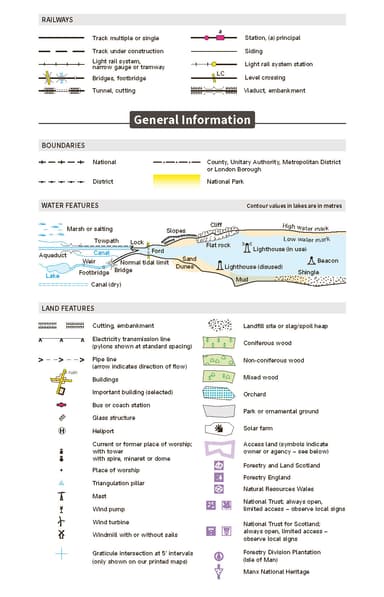Myths about teaching can hold you back
- Year 1
Fieldwork: Observing geographical features on our route
I can observe and use geographical vocabulary to talk about features of our local area as we follow a route to a local play area.
- Year 1
Fieldwork: Observing geographical features on our route
I can observe and use geographical vocabulary to talk about features of our local area as we follow a route to a local play area.
These resources were made for remote use during the pandemic, not classroom teaching.
Switch to our new teaching resources now - designed by teachers and leading subject experts, and tested in classrooms.
Lesson details
Key learning points
- Routes, e.g. to a local play area, can be plotted and followed on different kinds of maps.
- Geographers use maps in fieldwork to find and locate specific features, e.g. in a local play area.
- Geographers use different ways of assessing features and places, such as when comparing views about a play area.
- Journey sticks can help us record and remember what a place is like.
Keywords
Fieldwork - Fieldwork is investigating the outdoors using geographical tools and thinking to gather information or data.
Journey stick - A journey stick is a way to remember a route by collecting items on the route and fixing them to a stick.
Play equipment - Play equipment are structures that children use for play such as swings, slides, climbing frames and sand boxes.
Opinion - An opinion is a thought, feeling or belief held by a person or group of people.
Common misconception
Fieldwork means being in a field.
Fieldwork can take place anywhere! It means going outside to observe and gather information.
To help you plan your year 1 geography lesson on: Fieldwork: Observing geographical features on our route, download all teaching resources for free and adapt to suit your pupils' needs...
To help you plan your year 1 geography lesson on: Fieldwork: Observing geographical features on our route, download all teaching resources for free and adapt to suit your pupils' needs.
The starter quiz will activate and check your pupils' prior knowledge, with versions available both with and without answers in PDF format.
We use learning cycles to break down learning into key concepts or ideas linked to the learning outcome. Each learning cycle features explanations with checks for understanding and practice tasks with feedback. All of this is found in our slide decks, ready for you to download and edit. The practice tasks are also available as printable worksheets and some lessons have additional materials with extra material you might need for teaching the lesson.
The assessment exit quiz will test your pupils' understanding of the key learning points.
Our video is a tool for planning, showing how other teachers might teach the lesson, offering helpful tips, modelled explanations and inspiration for your own delivery in the classroom. Plus, you can set it as homework or revision for pupils and keep their learning on track by sharing an online pupil version of this lesson.
Explore more key stage 1 geography lessons from the Local area: how do we read maps and plan routes? unit, dive into the full primary geography curriculum, or learn more about lesson planning.

Content guidance
- Exploration of objects
Supervision
Adult supervision recommended
Licence
Prior knowledge starter quiz
6 Questions
Q1.Which of these is a feature that you could walk past in your local area?
Q2.What is an opinion?
Q3.A risk is something that might put us in...
Q4.What must you consider when planning a route?
Q5.What colour represents play areas on a map?
Q6.Maps have one of these to help us understand the colours and symbols they show, what is it called?



